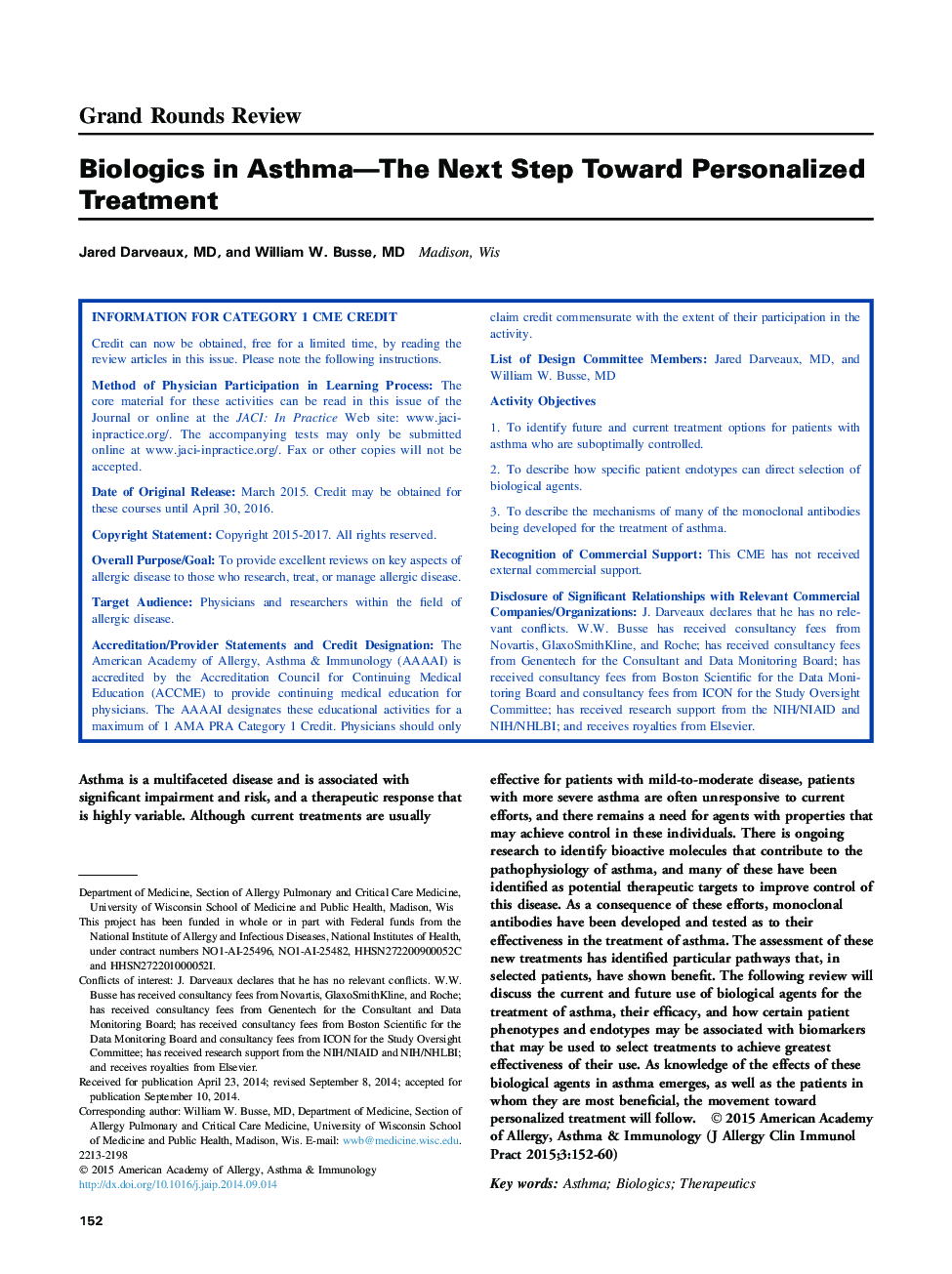| Article ID | Journal | Published Year | Pages | File Type |
|---|---|---|---|---|
| 6068847 | The Journal of Allergy and Clinical Immunology: In Practice | 2015 | 9 Pages |
Abstract
Asthma is a multifaceted disease and is associated with significant impairment and risk, and a therapeutic response that is highly variable. Although current treatments are usually effective for patients with mild-to-moderate disease, patients with more severe asthma are often unresponsive to current efforts, and there remains a need for agents with properties that may achieve control in these individuals. There is ongoing research to identify bioactive molecules that contribute to the pathophysiology of asthma, and many of these have been identified as potential therapeutic targets to improve control of this disease. As a consequence of these efforts, monoclonal antibodies have been developed and tested as to their effectiveness in the treatment of asthma. The assessment of these new treatments has identified particular pathways that, in selected patients, have shown benefit. The following review will discuss the current and future use of biological agents for the treatment of asthma, their efficacy, and how certain patient phenotypes and endotypes may be associated with biomarkers that may be used to select treatments to achieve greatest effectiveness of their use. As knowledge of the effects of these biological agents in asthma emerges, as well as the patients in whom they are most beneficial, the movement toward personalized treatment will follow.
Keywords
FEV1Expert Panel Report 3T helper 2T helper 1Th2Th1TSLPFeNOGM-CSFICSIFN-γIFN-βSNPsAsthmafractional exhaled nitric oxideInterferon betainterleukinBiologicstumor necrosis factor alphaTherapeuticsLABAgranulocyte–macrophage colony-stimulating factorTNF-αThymic stromal lymphopoietinforced expiratory volume in 1 secondSingle nucleotide polymorphismsInhaled corticosteroidsInterferon gamma
Related Topics
Life Sciences
Immunology and Microbiology
Immunology
Authors
Jared MD, William W. MD,
